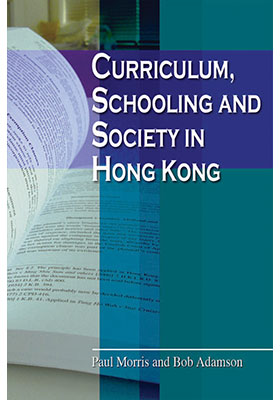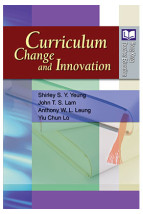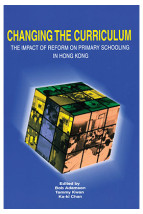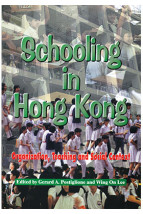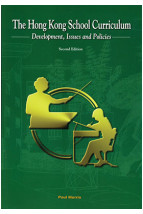Curriculum, Schooling and Society in Hong Kong
(香港教育課程、學校與社會)
ISBN : 978-988-8028-02-3
February 2010
228 pages, 6″ x 9″, 22 figures and 16 tables
Ebooks
Also Available on
Hong Kong is a fascinating place for the study of curriculum. Its schooling system is influenced by the legacies of a Chinese tradition and British colonialism and was developed at a time when, around the world, that state was taking more responsibility for the education of young people and educational policies were increasingly influenced by the impact of globalization. To this we can add the complexities of Hong Kong as a society—one that has witnessed major political and economic changes over the past 150 years or so, and particularly since the late 1970s. The dynamics produce an intricate interplay of innovation and conservatism, globalization and localization, liberalism and authoritarianism, devolution and centralization, and many other tensions.
This book provides a comprehensive introduction to curriculum as a field of study in a way which highlights its inherent dilemmas and complexities by illustrating the diverse ways in which a curriculum can be developed and analyzed. It also presents a specific analysis of the Hong Kong school curriculum and highlights the ways in which the curriculum both reflects and changes in response to broader socio-political shifts.
“Curriculum, Schooling and Society in Hong Kong is clearly written and well organized. It provides an excellent delineation of curriculum concepts and is an important contribution to ongoing discussions about curriculum development in Hong Kong. Scholars and school practitioners will find the book informative and thought-provoking.” —John Chi-Kin Lee, The Chinese University of Hong Kong
“Curriculum is society’s answer to the question ‘What is to be learned?’. It is a tool for re-creating, re-shaping society, critical for its survival. The authors of this book set out to do two things: trying to help the readers to gain in-depth understanding of curriculum as a field of study in general, and of the Hong Kong curriculum in particular. Was it a wise undertaking to try to do two things at the same time? Yes, so it seems, indeed. This book serves both its purposes better than any other book I know of, and it does so exactly because those two purposes are dealt with in relation to each other, and not one at a time.” —Ference Marton, University of Gothenburg, Sweden

